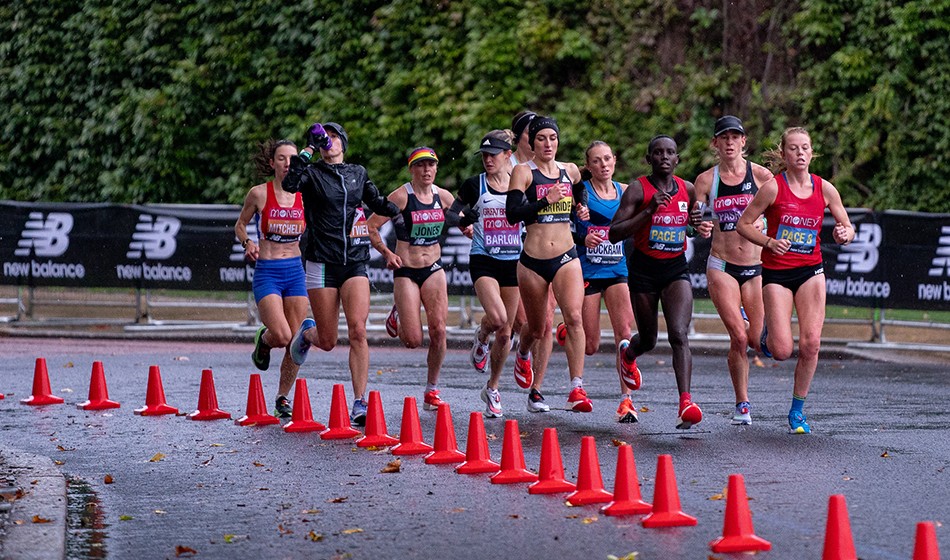
Here are a dozen key talking points on the eve of the British Olympic Marathon and 20km Walks Trials at Kew Gardens on Friday
Are you looking forward to the Müller British Olympic Marathon and 20km Walks Trials at Kew Gardens on Friday (March 26)? If so, here are some pre-race thoughts to set the scene.
Will it be worth watching?
No brainer. Of course it is. Catch the commentary with Tim Hutchings and Mara Yamauchi on iPlayer or the BBC Sport website or iPlayer CLICK HERE
Or watch the British Athletics stream CLICK HERE
The 20km race walks start at 6am and the marathon 8am. (Or 7am and 8am CET). With no spectators allowed on the course, the stream is as close as you’ll get to the action.
Meanwhile to follow the live splits CLICK HERE
What do the athletes have to do to get to Tokyo?
The marathon selection standards are 2:11:30 for men and 2:29:30 for women. British Athletics can pick three men and three women in each event but only two spots are available in the men’s marathon because Callum Hawkins has been pre-selected.
The 20km race walkers are trying to break 81:00 for men and 91:00 for women. If any athletes finish in the top two places and have the qualifying time, they will be automatically selected for the Games.
For our Who, What and When guide CLICK HERE
Why Kew Gardens?
Dorney Lake near Windsor was seriously considered but Kew Gardens ticked many boxes. The area of Richmond that it occupies has a rich running heritage as the birthplace of the London Marathon and parkrun, not to mention the old training patch of Mo Farah and even Usain Bolt.
The paths around Kew Gardens are flat, surrounded by trees and walls to shelter runners from the wind and the area is enclosed and Covid-secure. To remind them of their Tokyo goal, athletes will also pass some Japanese Gardens and lots of cherry blossom trees in bloom.
More about the background to the event – CLICK HERE
Tom Bedford at Kew Gardens (Mark Shearman)
What about Birmingham 2022?
The Commonwealth Games is in just over a year’s time and many athletes on Friday will be aiming to use the trials to qualify for this. The qualification standards to make the England team, for example, were announced only a few days ago and are 2:14:00 and 2:34:00. So it’s not all about the Olympics.
How fast is this course?
There were grumblings earlier this winter that the narrow paths in Kew Gardens were twisty and slow. But many of the corners have been smoothed out and Dave Bedford, the technical director of the event, says it is as fast as he has ever seen and even on a par with the Vienna course that hosted Eliud Kipchoge’s sub-two-hour marathon in 2019.
For more on Bedford’s views – CLICK HERE
Will the standalone trials format work?
The last time Britain staged an Olympic trials race like this was back in 1980 at Milton Keynes.
Usually the trial is part of the London Marathon and ends up being ‘a race within a race’. But on Friday the spotlight will fall on the British contenders only.
Back in 1980 incidentally, my colleague at AW, Steve Smythe, actually took part and you can read his memories of it – CLICK HERE
Who will qualify?
Okay, it’s predictions time. I am hopeless at these and marathons are notoriously unpredictable but I will have a punt.
In the women’s marathon I will take Natasha Cockram to pip Steph Davis with both well inside the qualifying time. For a pre-race piece on Cockram CLICK HERE
For the men, Dewi Griffiths looks quietly confident and has run 2:09 in the past so I take him to win with Ben Connor sealing Olympic qualifying in second.
My dark horses? Naomi Mitchell and Adam Hickey.
London Marathon Events
What about the injured absentees?
None of the three quickest women on paper, Jess Piasecki, Charlie Purdue or Steph Twell, are racing. It is unclear how bad their injuries are. Certainly, their decision to miss the trials is a gamble and could backfire if a number of women break 2:29:30 on Friday.
Jonny Mellor, the fastest British man in 2020, is also absent after AW broke the story about how a compression sleeve triggered gout in his ankle and led to him missing lots of training. To read more – CLICK HERE
I am sure they would all rather be racing but instead they are in for a nerve-wracking experience as mere spectators on the live stream.
Will there be any surprises?
Quite possibly. There have been some big upsets in the past. Remember Tracey Morris, for example? The optician’s assistant from Leeds merely started running to keep fit when she was 30 and six years later turned up at the 2004 Olympic trial in London as a virtually unknown long shot, but she finished No.1 British woman and went on to finish 29th in the Athens Games.
Who might cause a surprise this week? Look out for Becs Gentry, a celebrity instructor for online fitness company Peloton who has more Instagram followers than the rest of the field put together. Gentry has a best of 2:37:01 but has never experienced racing at this level before.
Or how about Annabel Gummow, who used to be one of Britain’s leading teenage runners – finishing 22nd in the World Cross under-20 race in 2011 – and is one of several marathon debutantes on Friday.
Annabel Gummow (Mark Shearman)
What about the race walks?
Callum Wilkinson seems in great form after his British 10,000m record recently and could upset Tom Bosworth, while Heather Lewis could get the Olympic standard in the women’s 20km.
Watch out for Dominic King, too. He broke a 31-year-old British 50km record on Saturday and spoke to AW at length this week about life training for the most gruelling event on the Olympic programme – CLICK HERE
Will any records fall?
There are unlikely to be any outright British records but Andrew Davies will be attacking his own British M40 record of 2:14:38 which he set in Valencia in 2019.
The 41-year-old spoke to us after he set that mark and to read his interview – CLICK HERE
No mention of super shoes?
They are impossible to ignore and will certainly be a talking point post-race if a flurry of relatively unknown contenders crash inside the qualifying standards.















 Phone: (800) 737. 6040
Phone: (800) 737. 6040 Fax: (800) 825 5558
Fax: (800) 825 5558 Website:
Website:  Email:
Email: 






